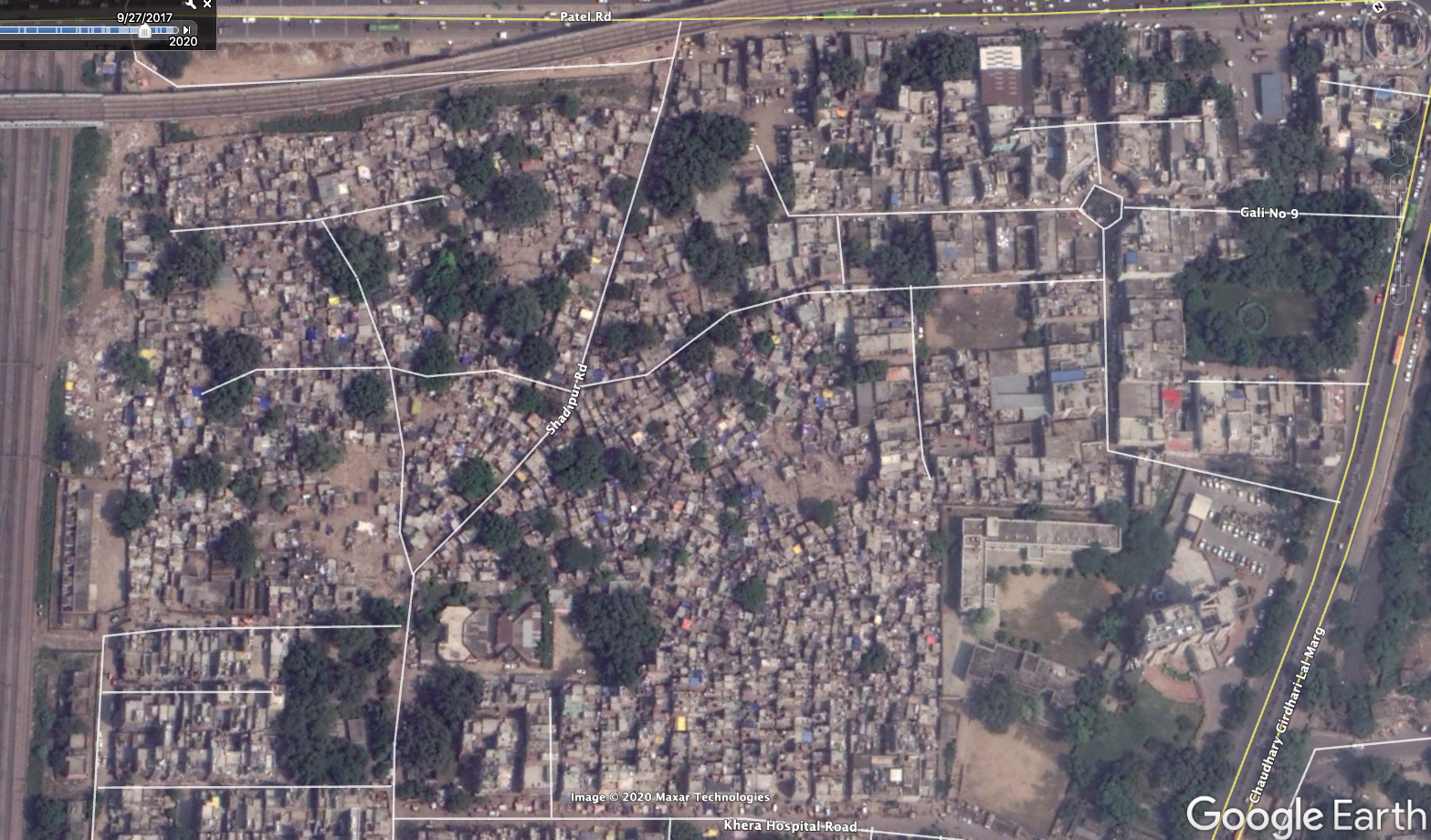
Page 33: Pardox of Grace
Far from being shortlisted for World Hertiage Status, the colony is now the site chosen for Delhi's first in-situ slum development program.
If this scheme is successful, it will be the prime template that Delhi will use to deal with her urban poor going forward.
Needless to say, all eyes are on this project.
The idea, as the name suggests, is to rehabilitate the slum without permanently displacing its residents.
However, you CAN temporarily displace them…
…ideally within a certain radius so that jobs and schools remain accessible.
Under this program, developers are allowed to underbid on land and, in exchange, must provide housing for the families that once lived there.
If you have 700 + families on valuable land, the first thing you must do is run a census.
Then tell everyone the plan (in essence):
Dear jhuggi resident:
You will be evicted, your home destroyed, but not to worry.
After the construction is completed in two, three, four, or five years, or more, you just have to present your paper chit [receipt] that once proved you lived here and we will house you in one of our deluxe high rises.
In the meantime, we will place you in a transit camp - a temporary camp - with all the amenities you could ask for.
This transit camp may be kilometers away from where you normally find work or send your children to school, but it's better than eviction.
Please understand that we will ask you to leave nicely just once. Then after that, every time we come back things will get more difficult for you. If you refuse to leave, and we do not recommend this, you will be beaten with lathis, maced, and dragged from your home where you can watch us bulldoze it right in front of you. The choice is yours.
But we mean well.
We want your slum to be redeveloped into a thriving community. Just vertical instead of horizontal like you have it now.
Unfortunately, we cannot let you see the model apartment that we built. There is a controversy with one of the NGOs that controls that project and they have the key.
And by the way, once you do move back in to the new high-rise, the costs to repair the building will be yours. If the water stops flowing, you will need to take care of that yourselves, or you can go back to walking down to the tracks to carry water in your lotas. If the elevator breaks down, that's your responsibility too - or you can just take the stairs.
Overall, when you listen to the conversation happening right now around slum rehabilitation in India, you hear something that sounds a lot like the theologian Reihhold Neibuhr's concept of the ‘paradox of grace’.
The paradox of grace was something that US presidents Kennedy and Obama both really liked.
The paradox of grace says:
In order to do good in the world you must be prepared to do some damage.
You must be able to use power as it corrupts you.